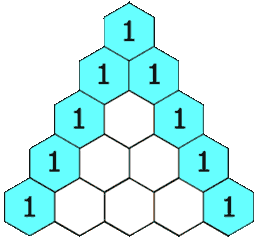Roman numerals are represented by seven different symbols: I, V, X, L, C, D and M.
Symbol Value I 1 V 5 X 10 L 50 C 100 D 500 M 1000
For example, 2 is written as II in Roman numeral, just two one's added together. 12 is written as XII, which is simply X + II. The number 27 is written as XXVII, which is XX + V + II.
Roman numerals are usually written largest to smallest from left to right. However, the numeral for four is not IIII. Instead, the number four is written as IV. Because the one is before the five we subtract it making four. The same principle applies to the number nine, which is written as IX. There are six instances where subtraction is used:
Ican be placed beforeV(5) andX(10) to make 4 and 9.Xcan be placed beforeL(50) andC(100) to make 40 and 90.Ccan be placed beforeD(500) andM(1000) to make 400 and 900.
Given a roman numeral, convert it to an integer.
Example 1:
Input: s = "III" Output: 3
Example 2:
Input: s = "IV" Output: 4
Example 3:
Input: s = "IX" Output: 9
Example 4:
Input: s = "LVIII" Output: 58 Explanation: L = 50, V= 5, III = 3.
Example 5:
Input: s = "MCMXCIV" Output: 1994
Explanation: M = 1000, CM = 900, XC = 90 and IV = 4
Solution:
Note: Only function is written.
class Solution {
public int romanToInt(String s) {
Map<Character,Integer> map=new HashMap<>();
map.put('I',1);
map.put('V',5);
map.put('X',10);
map.put('L',50);
map.put('C',100);
map.put('D',500);
map.put('M',1000);
int result=map.get(s.charAt(s.length()-1));
for(int i=s.length()-2;i>=0;--i)
{
if(map.get(s.charAt(i))<map.get(s.charAt(i+1))){
result-=map.get(s.charAt(i));
}else{
result+=map.get(s.charAt(i));
}
}
return result;
}
}
